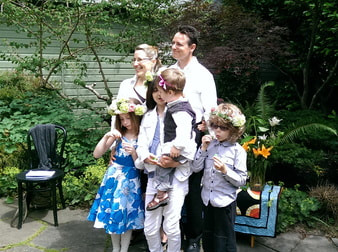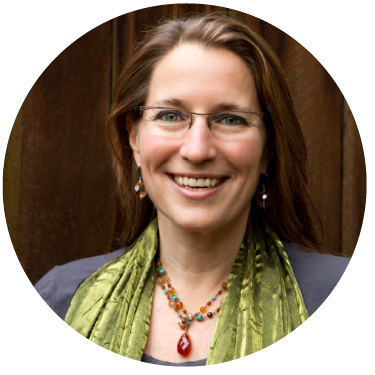
1. What does marriage mean to you?
I’ve been married three times – all to the same woman. Like many same-sex couples, we created a commitment ceremony back before legal weddings were conceivable. We married legally in those few weeks before Oregon's Measure 36 declared us “null and void”. By the time of this spring's historic ruling, we already felt like an old married couple.
For some, the opportunity to marry is primarily a formality. Having long committed to each other, these couples want a simple way to confirm their legal status. For others, planning a thoughtful ceremony represents a do-over to the hurried, cookie cutter wedding conducted during the brief window in 2004. And then there are the newly-paired lovebirds.
What about you? Is your wedding threshold at the beginning of your journey together? Or a celebration of many years of road-tested commitment? Will it be a renewal of vows you’ve made to each other before, or a chance to newly consider the question of what you’re pledging to each other?
2. Who will marry you?
Clergy and judge used to be your only options and they still suit many of us. Others have a best friend do the honors. Wedding Celebrants like me are secular ceremony experts who can help you create a ceremony as unique as the two of you, customizing every word to reflect your love story, your values, your community. Do you want someone to simply officiate the ceremony or to work with you as a creative partner? Do you thrive on the risks and rewards of a DIY approach or do you want the support of a professional with countless weddings-worth of experience?
3. What will you pledge to each other?
Vows are often the last thing a couple gets to after wrangling over guest lists and catering menus. But these promises, likely the most intimate words you’ll speak in public, are truly the heart of the matter. You can each write your own, revealing them at the altar, or write them together (there’s no better values clarification exercise). You can get some great examples off the web or from your Celebrant. Give yourselves plenty of time and see what you can learn about each other through the process!
4. Will you involve your community?
If you’re inviting more than the two-witness minimum, it’s because the presence of your community means something to you. How will you express that? A few special people might recite a reading, offer a piece of music. The wisdom of those whose relationships you respect can be written on ribbons that encircle you, to be consulted later when the going gets tough. Everyone can be involved through a ring warming or a community pledge of support. Get creative and find a ritual of connection that reflects you and your peeps.
5. How will you include those not present?
Weddings are one of those times when those not present can be felt as deeply as those in the room. Whether deceased, estranged or unsupportive, or unable to attend due to illness or other circumstance, there may be missing loved ones who are on your minds. Find a way to honor their absence, even if privately. More public acknowledgement can take the form of an empty chair, a memory candle, a photo displayed discreetly.
Here’s to a heart-felt celebration of what really matters, expressed through a ceremony as unique as you.
Reprinted from PQ Monthly.
Read more stories:
- I Now Pronounce You: My latest (and final?) marriage ceremony with Amber
- My Big (Null & Void) Gay Wedding: Our White Salmon and Lucky Lab ceremonies.
- Yes, I'll Marry You: A whirlwind tour through my 26 years of activism for LGBT equality.
- The Perfect Bookend to a Long Chapter: Kelly and Dolores sharing their role in history with their children.
- Old Married Couple Legally Weds: Another couple navigates the question of how to cross the new legal threshold for the marriage they'd already celebrated.




 RSS Feed
RSS Feed